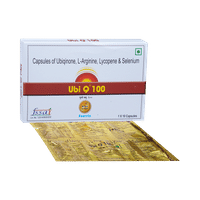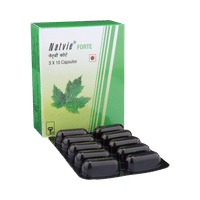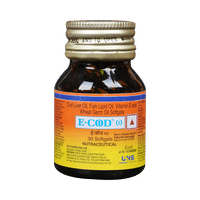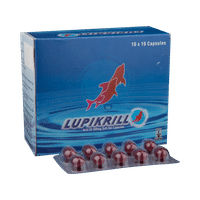AMLODIL-H 5MG/12.5MG TABLET

Rs.65.40for 1 strip(s) (15 tablets each)
food interaction for Amlodil-H
alcohol interaction for Amlodil-H
pregnancy interaction for Amlodil-H
lactation interaction for Amlodil-H
food
alcohol
pregnancy
lactation
AMLODIL-H 5MG/12.5MG TABLET may be taken with or without food, but it is better to take it at a fixed time.
None
None
CAUTION
It is unsafe to consume alcohol with AMLODIL-H 5MG/12.5MG TABLET.
UNSAFE
AMLODIL-H 5MG/12.5MG TABLET may be unsafe to use during pregnancy. Although there are limited studies in humans, animal studies have shown harmful effects on the developing baby. Your doctor will weigh the benefits and any potential risks before prescribing it to you. Please consult your doctor.
CONSULT YOUR DOCTOR
AMLODIL-H 5MG/12.5MG TABLET is probably safe to use during breastfeeding. Limited human data suggests that the drug does not represent any significant risk to the baby.
SAFE IF PRESCRIBED
SALT INFORMATION FOR Amlodil-H
Amlodipine(5mg)
Uses
Amlodipine is used in the treatment of Hypertension (high blood pressure) and Angina (heart-related chest pain).
How it works
Amlodipine is a calcium channel blocker. In high blood pressure, it normalizes the blood pressure by relaxing the blood vessels to reduce the pressure on them, thereby improving the blood flow in the body. The enhanced blood flow in the body, further relaxes the heart muscles by reducing the workload on the heart. It also improves the oxygen flow in the body, thereby, preventing any heart-related chest pain.
Common side effects
Headache, Nausea, Abdominal pain, Flushing (sense of warmth in the face, ears, neck and trunk), Dizziness, Palpitations, Edema (swelling), Hypotension (low blood pressure), Chest pain, Fainting, Muscle cramp, Visual disturbance, Shortness of breath, Change in bowel habits, Weakness, Insomnia (difficulty in sleeping), Mood changes, Depression, Tremors, Taste change, Hypoesthesia (decreased sensitivity to stimuli), Paresthesia (tingling or pricking sensation), Arrhythmia (irregular heartbeats), Vomiting, Dryness in mouth, Rash, Muscle pain, Back pain, Frequent urge to urinate, Impotence, Breast enlargement in male, Decreased white blood cell count (lymphocytes), Low blood platelets, Allergic reaction, Increased glucose level in blood, Confusion, Hypertonia (increased muscle tone), Pancreatic inflammation, Gingival hyperplasia, Hepatitis (viral infection of liver), Angioedema (swelling of deeper layers of skin), Stevens-Johnson syndrome
Hydrochlorothiazide(12.5mg)
Uses
Hydrochlorothiazide is used in Hypertension (high blood pressure). It treats oedema (fluid overload) associated with heart, liver, kidney or lung disease.
How it works
Hydrochlorothiazide is a diuretic which lowers blood pressure by removing extra water and certain electrolytes from the body. Over time it also relaxes blood vessels and improves blood flow.
Common side effects
Increased uric acid level in blood, Decreased magnesium level in blood, Orthostatic hypotension (sudden lowering of blood pressure on standing), Anemia (low number of red blood cells), Urticaria, Xanthopsia, Pulmonary edema, Agranulocytosis (deficiency of granulocytes in the blood)
SUBSTITUTES FOR Amlodil-H
40 Substitutes
40 Substitutes
Sorted By
 Rs. 126pay 76% more per Tablet
Rs. 126pay 76% more per Tablet Rs. 42.35save 6% more per Tablet
Rs. 42.35save 6% more per Tablet Rs. 117pay 76% more per Tablet
Rs. 117pay 76% more per Tablet Rs. 64pay 44% more per Tablet
Rs. 64pay 44% more per Tablet Rs. 70.50pay 61% more per Tablet
Rs. 70.50pay 61% more per Tablet
Expert advice FOR Amlodil-H
- You have been prescribed Amlodipine to improve your blood pressure and/or to reduce the number and severity of angina attacks.
- Lowering blood pressure reduces the chance of future heart attack and stroke.
- Take it at the same time every day to help you remember to take it.
- A sudden drop in your blood pressure may occur, especially when you first start taking Amlodipine. To lower the chance of feeling dizzy or passing out, rise slowly if you have been sitting or lying down.
- It can cause ankle or foot swelling. To reduce the swelling, raise your legs while you are sitting down. Talk to your doctor if it does not go away.
- It may cause dizziness. Do not drive or perform any activity that requires mental focus until you know how Amlodipine affects you.
- Inform your doctor if you are pregnant, planning a pregnancy or breastfeeding.
Frequently asked questions FOR Amlodil-H
Amlodipine
Q. How long does it take for Amlodipine to work?
Amlodipine starts working on the day it is taken. However, it may take weeks to see the full effect. You should continue taking the medicine even if you feel better or if you do not notice any considerable difference. Consult your doctor if you have any concerns or you feel worse after taking the medicine.
Q. Does Amlodipine cause itching?
Amlodipine may cause itching in some patients, though it is an uncommon side effect. However, if you experience severe itching contact your doctor.
Q. Is Amlodipine bad for the kidneys?
No, there is no evidence that Amlodipine causes deterioration of kidney problems. Amlodipine can be used in normal doses in patients with kidney problems. In fact, its blood pressure-lowering effect, it helps to prevent injury to the kidneys due to hypertension.






















